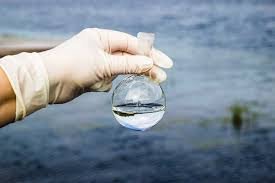Environmental testing labs play a crucial role in monitoring, analyzing, and ensuring the safety and health of our surroundings. With the growing awareness of environmental issues and stricter regulatory requirements, these labs have become essential for maintaining clean air, water, and soil. This article explores the significance, services, and technologies used in environmental testing labs.
What Are Environmental Testing Labs?
Environmental testing labs are specialized facilities that assess the quality and safety of natural resources like air, water, and soil. They perform chemical, physical, and microbiological tests to identify pollutants and contaminants.
These labs provide data that helps industries, governments, and organizations comply with environmental regulations and make informed decisions to reduce environmental harm.
Key Importance of Environmental Testing Labs
- Regulatory Compliance:
Environmental regulations are becoming stricter. Testing labs help companies meet environmental standards and avoid legal penalties. - Pollution Monitoring:
Regular testing helps monitor and control pollution levels in air, water, and soil, reducing long-term environmental damage. - Public Health Protection:
By identifying contaminants in drinking water or air, testing labs help protect communities from health risks. - Sustainability:
Testing labs enable industries to adopt sustainable practices by analyzing waste materials and emissions.
Services Offered by Environmental Testing Labs
- Water Quality Testing:
- Drinking water analysis
- Wastewater treatment assessments
- Groundwater contamination detection
- Air Quality Testing:
- Indoor and outdoor air pollutant analysis
- Industrial emission monitoring
- Toxic gas detection
- Soil Analysis:
- Agricultural soil nutrient testing
- Contamination assessment for construction sites
- Waste Testing:
- Hazardous waste identification
- Recycling potential analysis
- Microbiological Testing:
- Pathogen detection in water and food
- Mold and bacteria assessments
- Chemical Testing:
- Heavy metal detection
- Pesticide and chemical residue analysis
Advanced Technologies Used in Environmental Testing
- Mass Spectrometry (MS)
Detects and quantifies complex pollutants at minute levels. - Gas Chromatography (GC)
Ideal for separating and analyzing chemical mixtures in air samples. - Atomic Absorption Spectroscopy (AAS)
Used for heavy metal analysis in water and soil samples. - PCR (Polymerase Chain Reaction)
Detects specific microorganisms in environmental samples.
Industries That Benefit from Environmental Testing
- Manufacturing: Ensures compliance with emission standards.
- Construction: Evaluates soil safety for building projects.
- Agriculture: Monitors soil and water health for crop production.
- Energy: Assesses environmental impact from energy production.
- Government: Sets environmental regulations and monitors pollution levels.
Choosing the Right Environmental Testing Lab
1. Accreditation and Certification
Ensure the lab holds certifications like ISO/IEC 17025 for quality assurance.
2. Advanced Testing Methods
Look for labs using state-of-the-art technologies for accurate results.
3. Comprehensive Services
Select labs offering a wide range of testing services under one roof.
4. Experienced Personnel
Qualified experts ensure reliable and actionable testing results.
Environmental Testing for a Sustainable Future
Environmental testing labs play a vital role in preserving our planet for future generations. By identifying pollutants and monitoring resource quality, they help individuals and industries make better environmental decisions.
Final Thoughts
As environmental concerns continue to rise, the role of environmental testing labs becomes increasingly critical. Partnering with a reputable lab can ensure compliance, protect public health, and contribute to a healthier, sustainable planet. Whether you are an industry professional or a concerned individual, environmental testing is a powerful tool for creating a greener, safer world.


